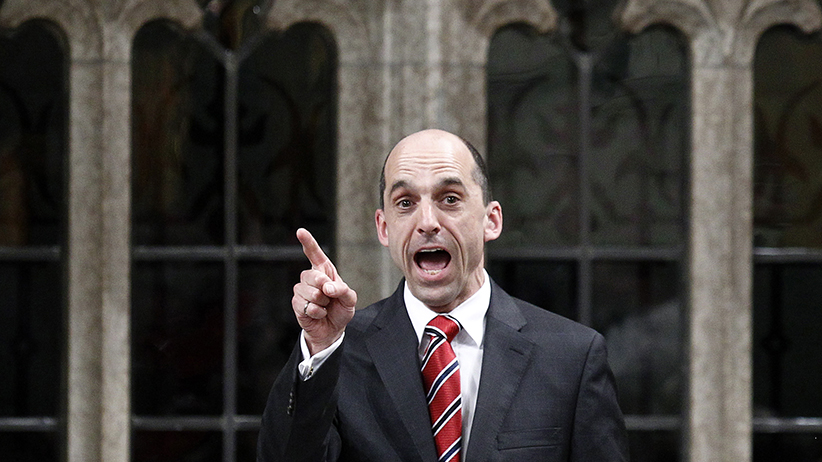Everything you need to know about C-51
Aaron Wherry chats with law prof Craig Forcese
The Peace Tower is framed in an archway on the East Block of Parliament Buildings on Parliament Hil in Ottawa, Thursday September 10, 2009. When the House of Commons resumes Monday, there will be a short period of non-partisan esprit de corps â but then an ideological battle begins in earnest between the Conservatives and the NDP on everything from the economy to crime.Canada’s 41st Parliament gets back to business in the morning with tributes to late NDP leader Jack Layton, his absence felt more keenly because he spoke in the Commons until the very last day of the spring session in June. THE CANADIAN PRESS/Adrian Wyld
Share

A pair of cabinet ministers took their defence of Bill C-51, the contentious anti-terror bill working its way through Parliament, to the House public safety and national security committee earlier today. Parliamentarians opened their scrutiny of the bill with questions for Public Safety Minister Steven Blaney, Justice Minister Peter MacKay, CSIS Director Michel Coulombe, RCMP Commissioner Bob Paulson, and a few other departmental officials.
C-51 is a big, complicated attempt on the government’s part to stop terrorists before they inflict terror. Plenty of critics have lined up in opposition. Maclean’s associate editor Aaron Wherry has followed every second of the debate. University of Ottawa law professor Craig Forcese has offered his own comprehensive critique of the legislation. Forcese has also made his thoughts known at macleans.ca, including as part of an exhaustive roundtable with Ray Boisvert, a security analyst who spent nearly 30 years with CSIS. He also mused about the Tories breaking their own future law with a controversial Facebook post.
This morning, after the parliamentary committee wrapped up for the day, Wherry and Forcese chatted about C-51. See the recap below.